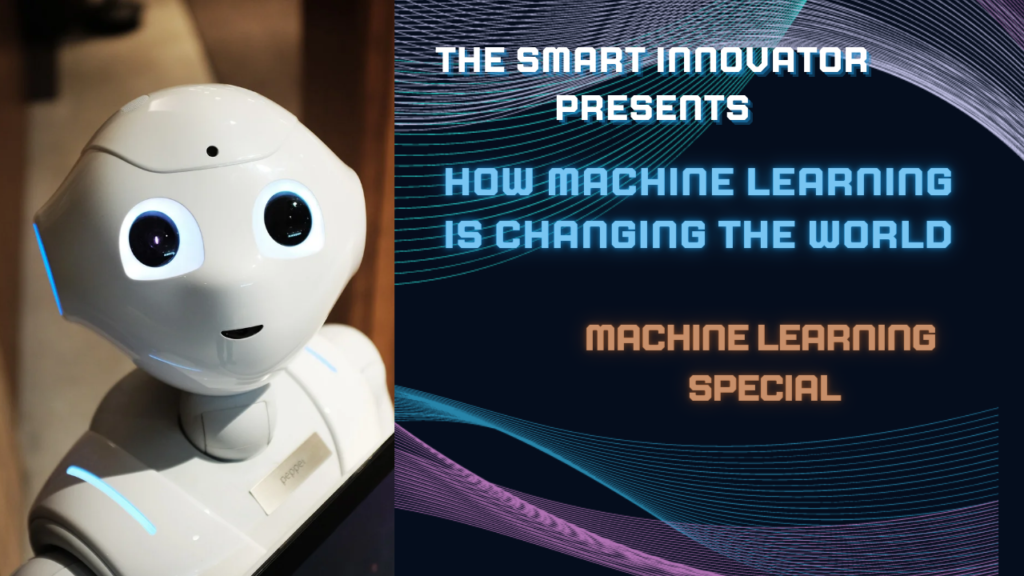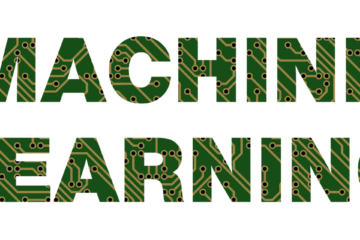How Machine Learning is Changing the World
Machine learning is an application of artificial intelligence that allows computers to automatically learn and improve from experience without being explicitly programmed. This technology is changing the world in countless ways, from improving medical diagnosis and treatment to revolutionizing the way we shop and travel. Here are some examples of how machine learning is changing the world

Introduction
Machine learning is a subfield of artificial intelligence (AI) that has gained a lot of attention in recent years due to its ability to revolutionize various industries. But how exactly is machine learning changing the world, and what are some of the key applications of this technology?
What is Machine Learning?
At its core, machine learning is a type of algorithm that allows computers to learn from data without being explicitly programmed. In other words, instead of relying on predefined rules and equations, machine learning algorithms can automatically improve their performance over time by analyzing large amounts of data.
There are three main types of machine learning: supervised learning, unsupervised learning, and reinforcement learning. Supervised learning involves training a machine learning model on labeled data, while unsupervised learning involves training a model on unlabeled data. Reinforcement learning involves training a model through trial and error, where the model receives rewards for making correct decisions.
How Machine Learning is Changing the World
One of the main ways that machine learning is changing the world is by improving decision-making processes in various industries. For example, in healthcare, machine learning algorithms can help doctors make more accurate diagnoses and develop more personalized treatment plans by analyzing large amounts of patient data. In finance, machine learning algorithms can help banks and investment firms make better investment decisions by analyzing market trends and predicting future outcomes.
Machine learning is also transforming industries like retail and e-commerce. By analyzing customer data, machine learning algorithms can help companies personalize their marketing and improve customer engagement. In addition, machine learning algorithms can help companies optimize their supply chain and logistics operations, leading to more efficient and cost-effective business processes.
Improving Healthcare
Machine learning is revolutionizing the healthcare industry by enabling more accurate diagnoses and better treatment recommendations. For example, machine learning algorithms can analyze medical images such as X-rays and MRIs to help doctors detect diseases such as cancer at an earlier stage.
Enhancing Cybersecurity
Machine learning algorithms can also help detect and prevent cyber attacks by identifying patterns in data that indicate potential threats. These algorithms can be trained to detect suspicious behavior and alert security teams to take action before any damage is done.
Personalizing User Experience
Machine learning is also used by businesses to personalize user experience. Companies like Amazon, Netflix, and Spotify use machine learning algorithms to suggest products, movies, and music to their users based on their preferences and past behavior. This has led to increased customer satisfaction and loyalty.
Advancing Transportation
Machine learning is also changing the way we travel. Self-driving cars use machine learning algorithms to analyze data from sensors and cameras to make driving decisions. This technology has the potential to reduce accidents and make our roads safer.
Improving Education
Machine learning is also being used in education to personalize learning experiences for students. Adaptive learning platforms use machine learning algorithms to adjust the difficulty of questions and content based on a student’s level of understanding, providing a more customized learning experience.
How Machine Learning is Changing the World Challenges
However, there are also challenges associated with machine learning. One of the main challenges is the need for high-quality data to train machine learning models. In addition, machine learning algorithms can sometimes be biased or produce inaccurate results, leading to potential ethical issues.
Applications of Machine Learning
Despite these challenges, machine learning is being applied in a wide range of industries and use cases. Some of the most promising applications of machine learning include:
Natural language processing:
- Machine learning algorithms can be used to analyze and understand human language, enabling applications like voice assistants and chatbots.
Computer vision:
- Machine learning algorithms can be used to analyze and understand visual data, enabling applications like self-driving cars and facial recognition technology.
Predictive maintenance:
- Machine learning algorithms can be used to predict equipment failure before it happens, allowing companies to perform maintenance before costly breakdowns occur.
How Machine Learning is Changing the World : Conclusion
In conclusion, machine learning is revolutionizing the world as we know it. From improving healthcare and education to optimizing business processes and enhancing our everyday lives, the applications of machine learning are endless. As more data is generated and more complex problems arise, machine learning will continue to evolve and transform industries across the board.
However, it’s important to also consider the ethical implications and potential risks associated with this technology. As we embrace the power of machine learning, we must also prioritize responsible development and implementation to ensure its positive impact on society.
Overall, the future of machine learning looks promising, and it’s up to us to harness its potential for good while mitigating any negative consequences. Follow us for more such detailed cover story only at The Smart Innovator. Have a question? Comment below for your questions or feedback.







0 Comments